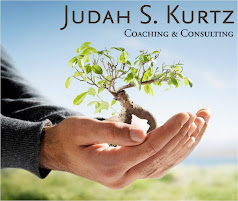WHY
From a very early age, we infer a variety of messages from personal experiences, the words and actions of family and teachers, and from society and media that we are wrong, broken, or simply “not good enough.” People have different ways they look to prove to themselves and others that this is not so. Some focus outward on achieving material success and indicators of “good enough” (job, possessions, credentials, recognition). Some focus inward on improvement of how they live and experience their inner and outer worlds – through therapy, coaching, self-help books and workshops, exercise, and spiritual practices.
None is inherently wrong, and none is necessarily better than another. I’m a huge advocate of self-development and orient my life around “the work.” However, it is important to ask yourself: Are you pursuing a particular course of self-improvement because you want to be your best you or because you are trying to fix something (inside or out) that you believe is broken? If it’s the former, then that can be an exciting way to live. If it’s the latter, then it’s time to take a look at your motivations and work on healing the past so you can develop a greater sense of self love. As you’ve probably heard before (but perhaps have yet to believe) in a whole range of teachings from Eckhart Tolle to Carl Rogers to Jesus Christ: you are whole, complete, resourceful, and an example of perfection just as you are in this very moment.
HOW
There are so many fantastic resources out there for supporting your journey of self-discovery – from racks of self-study books to experiential retreats to 1:1/group therapy. Gurus like Anthony Robbins and Oprah Winfrey; workshops through Landmark Education, Wright Institute, Avatar, and Body Electric; readings from Marianne Williamson, Don Miguel Ruiz, and Abraham-Hicks, and whole array of bloggers – these and many, many more provide incredible insight into ourselves, others, and to existence itself.
You can explore and experience and discover and grow. That is awesome. It takes a certain amount of digging and honesty to get to the real meaty stuff. Learning about yourself is fantastic, but what are you going to do with this information? Where people often fall short of making the true, lasting improvements they are seeking is in the consistent and persistent application.
Do you find yourself hearing and seeing the same messages over and over again? There is nothing new out there, as it’s all been said and done before but repackaged in more or less effective forms. When reading or participating, try paying attention not only to what is being communicated, but how well you are actually applying it every day. It’s great to hear reinforcement of insightful messages, but it’s equally important to take that information and do something with it.
At some point, you have to ask yourself how much more “work” you need to do on yourself before you can live the life you want. If you’ve been at this for a while, you probably already have enough to work with. Strive to create structures, commitments, accountability to others – anything that will support you in taking the action to reinforce and sustain your transformation. Remember this is not all about “achieving” happiness; you must allow it to unfold organically. Focus on breathing, quieting the mind, and finding ways to be more present, peaceful, and accepting (toward yourself and others).
The choice is yours: You can either seek out the next “high” (that may lead to the next “low”), or concentrate on healing the why of your addiction and commit to applying all you’ve learned in your daily life.







No comments:
Post a Comment